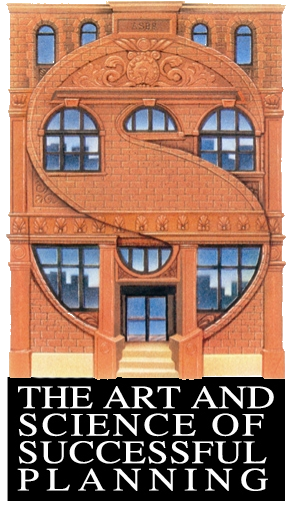How to Age-Proof Your Brain
Sure, we all want to keep our brains healthy as long as possible. But can we? Isn’t our brain health really out of our control, e.g., “Isn’t cognitive decline a normal part of aging?”
Turns out, according to Dr. Marc Milstein, a neuroscience researcher, we may have more control over the health of our brain than we realize. His research found that it may be possible to keep our brain’s age younger than our chronological age, e.g., if we’re 50, we could have the brain health of a 40-year-old.
So how can we keep our brains young and healthy? And, if it’s doable, is it too difficult?
The good news is that Dr. Milstein has outlined easy, practical tips below that are easy to do and can help keep your brain in tip-top shape.
Sleep: Your Greatest Ally in the Fight to Preserve Your Brain
Sleep Cycles
When we sleep, we go through three stages of sleep that make up a 90-minute cycle.
Each cycle creates various levels of brain electricity:
- Light sleep: Electrical activity is similar to the amount when you’re awake
- Deep sleep: Very low electrical activity relative to light and REM sleep
- REM sleep: (Rapid eye movement) sleep: A higher level of electrical activity than when you’re awake
7-9 hours/night
Most people need between seven and nine hours of sleep for optimal brain health, but the number of hours is specific to you.
There’s a rare group of people who can function at high physical and mental levels on significantly less sleep. They’re called “short sleepers” and likely account for less than 1 percent of the population.1 Some people who think they’re short sleepers are actually sleep deprived—which makes them vulnerable to all the issues that come with lack of sleep.
If you’re sleeping more than nine hours a night, you should be evaluated by a physician. Excess sleep can be a sign of conditions such as heart disease, diabetes, and depression, and can raise the risk of memory issues, back and neck pain, and obesity.

- Sleep in True Darkness
Is your bedroom completely dark or just kind of dark? Bedrooms are often filled with cell phones, nightlights, televisions, and computers.
- Sleep in True Darkness

- Chill Out for Better Sleep2
Most people find it easier to fall asleep in a cool room, and it has to do with your sleep cycle. The first phase of the sleep cycle, light sleep, lasts about 20-30 minutes.
- Chill Out for Better Sleep2

- Get Out Early
Prepare for a good night’s sleep by getting natural light first thing in the morning. Spending 10-15 minutes outside walking your dog, checking the mail, or taking a stroll around the block will set your brain clock.
You Are What You Eat (And So Is Your Brain)
Your gut is a lot like a second brain. It contains 500-million brain cells that communicate with your brain. This communication is called your gut-brain axis. What happens in the gut can impact mood, memory, and how we age.
What we eat can calm or increase inflammation, help us lose or make us gain weight, and even improve our brain function.
Research points to a Mediterranean-type diet as being optimal for brain health. This diet is filled with fruits and vegetables, bursting with beans, nuts, and whole grains, and features fish, seafood, and healthy fats such as olive oil. The Mediterranean diet lowers the risk of Alzheimer’s disease even in those with a genetic risk factor for the disease.
The Stress Surprise
We hear it all the time: Stress is bad. But some stress is good for you because it focuses the brain and can even slow down brain aging. How do we find the right amount of stress to keep our brains and immune systems running like finely tuned Ferraris?
A study found that stress and unhappiness can be caused by our minds wandering. When our minds wander, they often go to unhappy, stressful, and anxious thoughts about the past or future. An antidote to this is being present, which is associated with greater happiness and less stress.
One way to be present is to practice mindfulness. A Harvard study asked people who’d never practiced mindfulness to do so for 30 minutes a day for eight weeks. Pictures of participants’ brains were taken before they started, during the eight weeks, and after.4
Throughout the study, the participants’ brains changed. The hippocampus grew—that’s the part of your brain that allows you to learn new things. The prefrontal cortex got stronger and longer—that’s the part that calms your stress response. And the amygdala shrank—that’s the part that manages our fight-or-flight stress response.
We can’t control much of what surrounds us, but we can gradually become experts at managing stress.
- Breathing Exercise
There are many mindfulness exercises, and they often involve breathing. Here’s one that’s simple and effective.
- Say to yourself or out loud, “breathe in calmness” and inhale through your nose
- Say “breathe out anxiety” and exhale through your mouth
- Try to focus on the breath going in your nose and out of your mouth
- If you’re having trouble focusing, place your hand on your stomach and pay attention to your breathing for five seconds. Feel the rise and fall of your abdomen with each breath.
If 30 seconds feels like a long time, that’s okay; it may take practice. If you can do 30 seconds, try to add another 30 seconds tomorrow. Think of it like lifting weights and increasing your reps.

- Change Your Perspective
Stress can be quite useful—and you can train yourself to view stress in that light.
- Change Your Perspective

- Rose, Thorn, Bud
Take a moment and think of the best thing that happened in the last 24 hours. That’s your rose. Next, think of the most challenging part of the previous 24 hours. That’s your thorn. Now think of something specific you are looking forward to in the next 24 hours. That’s your bud. This technique was shown in a 2019 study to be an effective means to manage stress and boost happiness
Get Moving
Exercise is like a miracle drug for the brain. If a drug generated the same brain benefits that exercise does, there would be lines stretching miles long to obtain it.
Lowers Risk of Dementia
A study at Cardiff University in the UK found that simply walking 30 minutes a day lowered the risk of dementia by about 65 percent.7 Those 30 minutes didn’t even have to be done consecutively.
Similarly, another study asked 50-year-old women to use an exercise bike, then placed them in four categories based on endurance. The categories ranged from “high physical fitness” to “could not finish the fitness test.” Forty years later the researchers found:
- 5 percent of the women in the high physical fitness category developed dementia
- 25 percent of the women in the moderate and low fitness categories developed dementia
- 45 percent of the women who couldn’t finish the fitness test developed dementia
Women who were classified as highly physically fit at 50 years old were 90 percent less likely to develop dementia than the group that couldn’t finish the test.
Improves Memory
A study published in the Journal of Alzheimer’s Disease investigated two groups of adults age 60 and older. For a year, the group did aerobic exercises while the other group just stretched. Afterward, the aerobic exercise group showed a whopping 47 percent average increase in memory scores while the stretching group saw no memory improvement.
Small Changes Can Make a Big Difference
How much exercise is required to protect your brain? Do you need to drop everything and train for a triathlon? Fortunately, no. It turns out even small changes can have a big impact. The next time you’re given a choice between stairs and an elevator or escalator, consider this: A study found that people ages 19-79 who consistently took the stairs had a younger-looking brain.8

- Cue: Setup Visual Reminders
Exercise becomes a habit when we make it a default behavior. We can set up a cue that drives us to take action to stick to an exercise program.
- Cue: Setup Visual Reminders

- Start Small
When it comes to exercise, it’s best to start small and build.
- Start Small
- Walk in place during TV commercials or before the next episode of a program you’re streaming
- Stand and/or walk during phone calls
- Park farther away from the grocery store
- Do 10 jumping jacks every hour (you can set your smartphone to remind you to do this)

- Reward: Do Something You Enjoy
Exercise must be fun and rewarding, or you likely won’t make it a habit. Pairing exercise with something you enjoy can be very helpful, such as exploring a new hiking trail or learning a new sport.
- Reward: Do Something You Enjoy

Friendships Can Help Protect Your Brain
Can going to a dinner party preserve your memory? People over fifty-five who regularly participated in, or hosted, dinner parties or other social events had a lower risk of losing their memories.13 It wasn’t because of what they ate or where they went; it was the effect of the repeated social connection with other people.
How important is social interaction to our mental and physical health? We’re used to hearing about the dangers of smoking and obesity, but loneliness has the same impact on mortality as smoking fifteen cigarettes a day, making it worse for us than obesity.14
Additionally, loneliness is associated with poorer decision-making, attention, cognitive ability, and brain shrinking and aging.15
It’s normal to feel lonely from time to time, but there’s a greater risk of loneliness as we age, as family and friends pass and children move away. That persistent loneliness makes us feel socially isolated.

Spend Time With Family and Friends (Especially Friends)
A study investigated whether people find more joy in being with their friends or family. (In this study, family was defined as people who share a home.) They found people were happier when they spent time with their friends instead of family.16
Get a Hearing Check
People with mild untreated hearing loss are twice as likely to develop dementia than those without hearing loss. Those with severe loss are five times as likely to develop dementia.17

Dr. Marc Milstein is a leading scientific researcher on neuroscience, health, and happiness. His insights provide science-based solutions to keep the brain healthy, lower the risk of dementia, boost productivity and maximize longevity. He earned both his Ph.D. in Biological Chemistry and his Bachelor of Science in Molecular, Cellular, and Developmental Biology from UCLA.
Dr. Milstein’s new book “The Age-Proof Brain” has been a #1 best seller on Amazon in several categories, including, Aging, Longevity, and Neuroscience.

